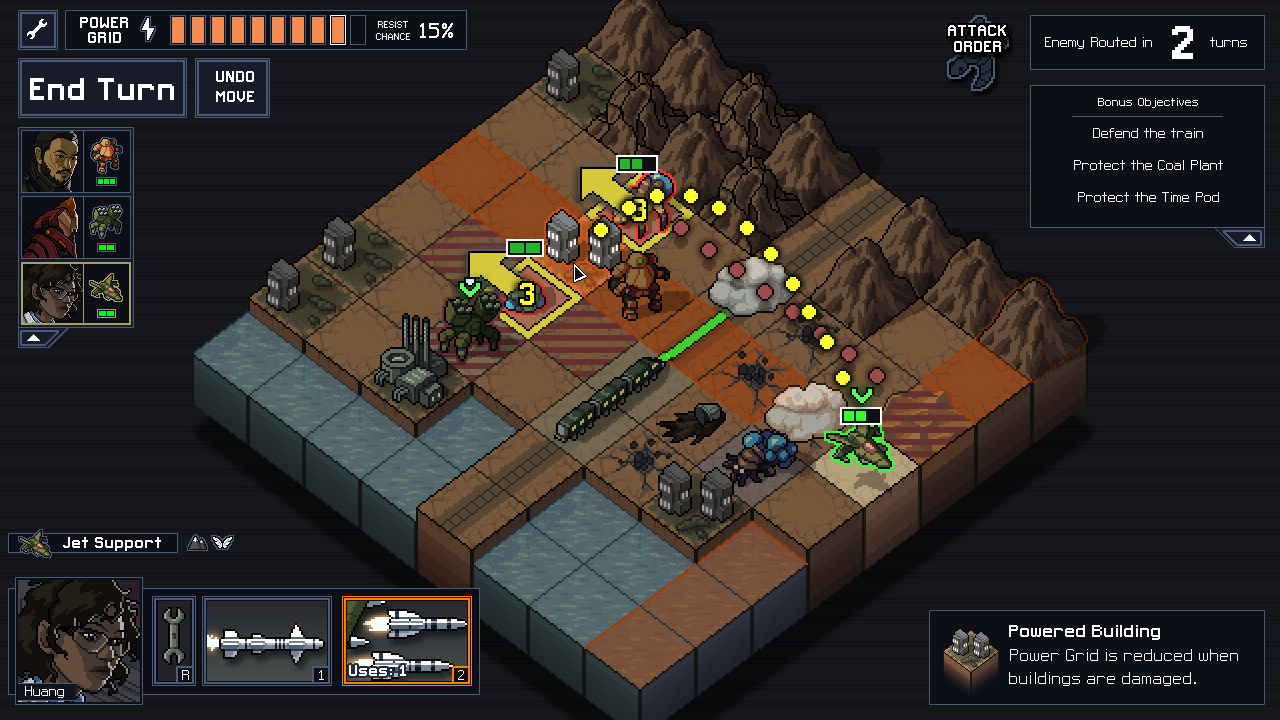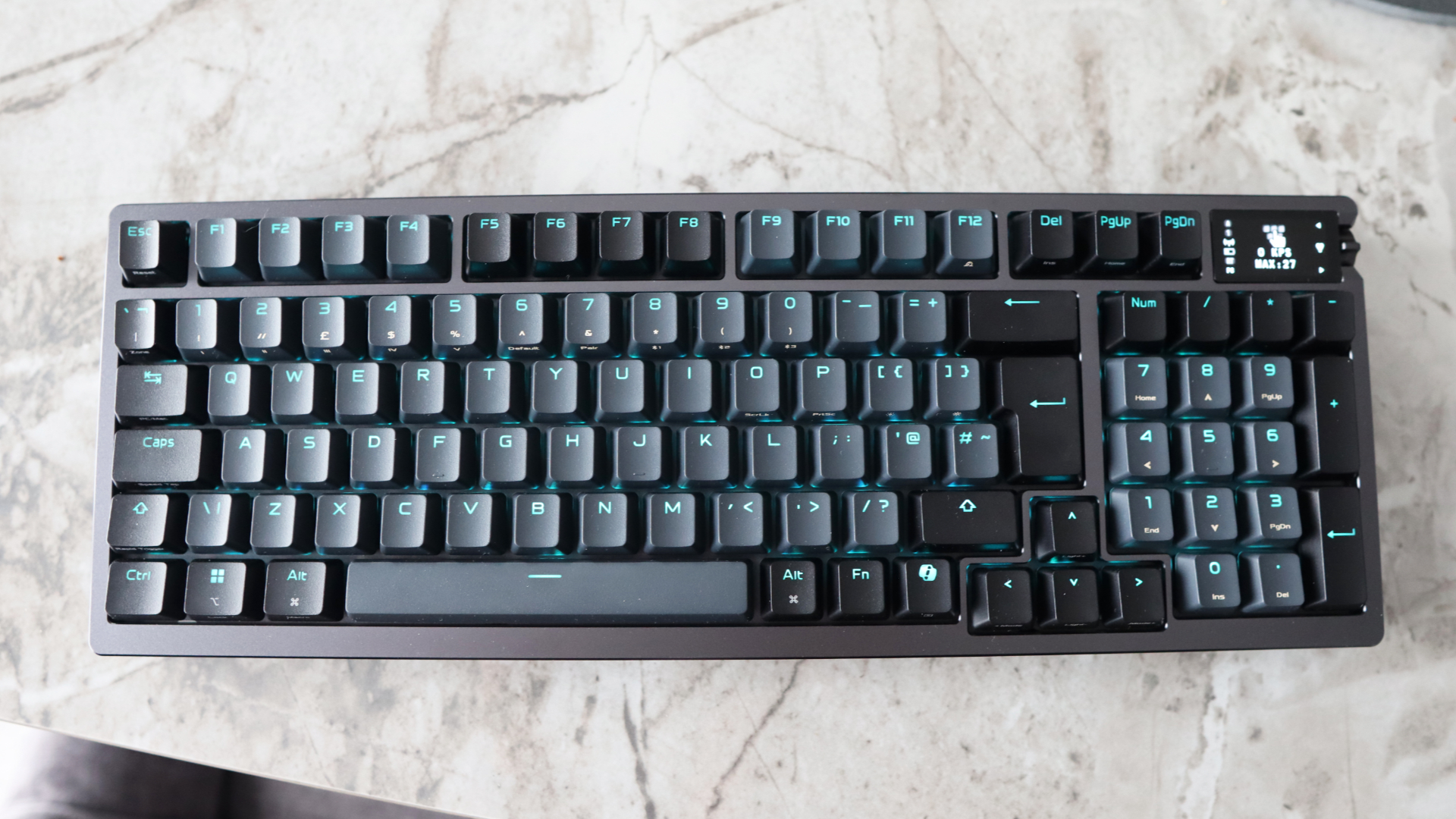Our Verdict
Exacting, agonising, challenging, and intensely rewarding, Into the Breach delivers in the tiniest package the most perfectly formed tactics around.
PC Gamer's got your back
What is it? A roguelike tactics game about duffing up bugs with mechs.
Expect to pay: $15
Developer: Subset Games
Publisher: Subset Games
Reviewed on: Intel i5-6600K / Nvidia GeForce 1070 / 16gb RAM
Multiplayer: None
Link: Official Site
Surely this is where it’ll end. One bug is attacking the train I’m meant to be defending. Another is about to destroy an apartment building. And for every building I lose, I lose another Power Grid point. I’ve only one left and once it’s gone, the Vek win.
If you’ve played FTL, you’ll remember the very particular kind of clammy-palmed panic it’d conjure as you’d face another seemingly no-win situation. Into the Breach will bring that feeling right back, and it’s wonderful. Developed by the same team, Subset Games, Into the Breach is FTL’s long-awaited follow up. It’s built on the same building blocks of roguelike progression, intricate interplays of abilities, and slow, knuckle-gnawing tension, but it also couldn’t be a more different kind of game.
Now, my Lightning Mech could run up to the bug attacking the train and lightning whip it to death. But the attack will chain into the adjacent train and destroy it, too. Every move I try either fails to deal with both bugs or destroys the train. This is impossible. It’s over.
Into the Breach is a turn-based tactics game in which your squad of three mechs is pitted against a swarm of ground-dwelling bugs, the Vek. Each level is played out across just five turns on an 8x8 grid, and your ultimate goal is survive, to build up the strength of your mechs, and to make it to the final denouement, in which you finish off the Vek for good.
Into the Breach’s tactics are tight and controlled because you know the exact results of your every move.
Its party trick is that you get to see the moves the Vek will make on their turn. Tactics games are, at their core, puzzle games, but while most involve a good deal of luck and guesswork, Into the Breach’s tactics are tight and controlled because you know the exact results of your every move. You know what the Vek will be attacking, for what damage and in what order. And that evens the odds, even while you’re almost always outnumbered.
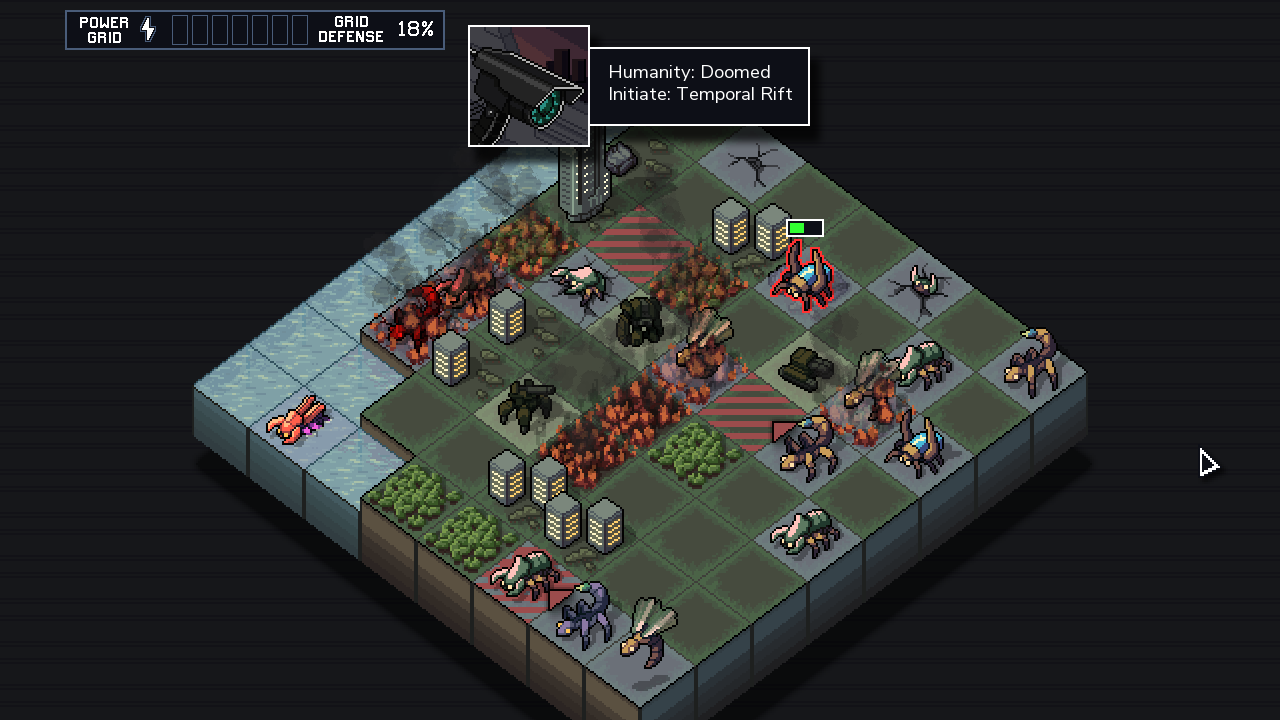
You also have amazing weapons on your side. Thinning the Vek’s numbers is always a good idea, but they’re not always about killing, since most can also move them, relocating their attacks. If you’re clever, you can make them attack each other or push them into bug-killing water. There are always many options, but you’re rarely sure you’re making the best ones. This is why, despite each battle taking place on just 64 tiles and across five short turns, I routinely spend 30 minutes on them, agonising over my choices. You will, too.
Wait. What if my Hook Mech pulls the bug attacking the city with its grapple? OK, the city’s still in danger because the bug charges in a straight line, but now it’s sitting a tile away from the bug attacking the train, and… I’m a genius. I move my Boulder Mech in and lob a rock between them, pushing both away so both attacks will hit nothing. We’ll live another day.
Keep up to date with the most important stories and the best deals, as picked by the PC Gamer team.
One of Into the Breach’s greatest strengths is that while its tactics are exacting and complex, its strategy involves a good deal of choice and variety. Each campaign run takes place across four themed islands. Each island features a set of levels from which you’ll choose four to battle on before playing the fifth one to protect your HQ from a final assault, and each level has different objectives. You might need to protect a coal plant or speeding train, to kill at least seven enemies, or to destroy a dam. If you succeed, they’ll grant certain rewards, either Power Grid points, Reactor Cores (which power up your mechs’ abilities and weapons), or Reputation, a currency you’ll spend on weapons and other gear to equip your mechs for the run.
You don’t lose the game if you fail objectives—only if you lose all your Power Grid—so you’ll constantly be weighing up the pros of one move against the cons of another. When push comes to shove, is it better defend the coal plant in order to win a Reputation point but leave your Combat Mech open to an attack? Or is it better that it definitely survives the level? The Power Grid ultimately defines your fate, so keeping it healthy is top priority, but looking after your mechs is a close second: when destroyed, their pilot is killed, replaced in the next battle by an AI which can’t earn XP and therefore won’t earn extra HP, movement and other abilities. But if you don’t earn better gear, you probably won’t survive the stiffer challenge of later levels. This is a game of hard choices.
Each squad is a joy to learn, each battle a new test of your skills. The challenge never stops changing.
After completing your second island, you have the option to go for the final battle, or you can fight on the other two islands to gather more gear, but the challenge scales with how far you get. Into the Breach is easier to finish than FTL, but it’s designed as a score-attack game, with medals awarded for how many islands you liberated before winning, your final score defined by the number of lives you saved. But you’ll also play with a mind to unlocking new squads of mechs by completing special achievements. The squads each have a different focus, so the Rusting Hulks tend to deploy attack-cancelling smoke, while the Hazardous Mechs deal big damage but get damaged back. Each squad is a joy to learn, each battle a new test of your skills. The challenge never stops changing.
For those who loved FTL for its thoughtful and clever design, it’s all here, too. But Into the Breach is a much tighter, more focused game. While there are plenty of weapons to experiment with, pilots with differing abilities to unlock, and level gimmicks to get your head around, you’ll have a very good idea of its breadth in your first run. For some, Into the Breach might lack a sense of mystery and expansiveness, but for me, it’s more than enough to fuel a hundred hours or more of the most consistently rewarding tactics I’ve played in many years.
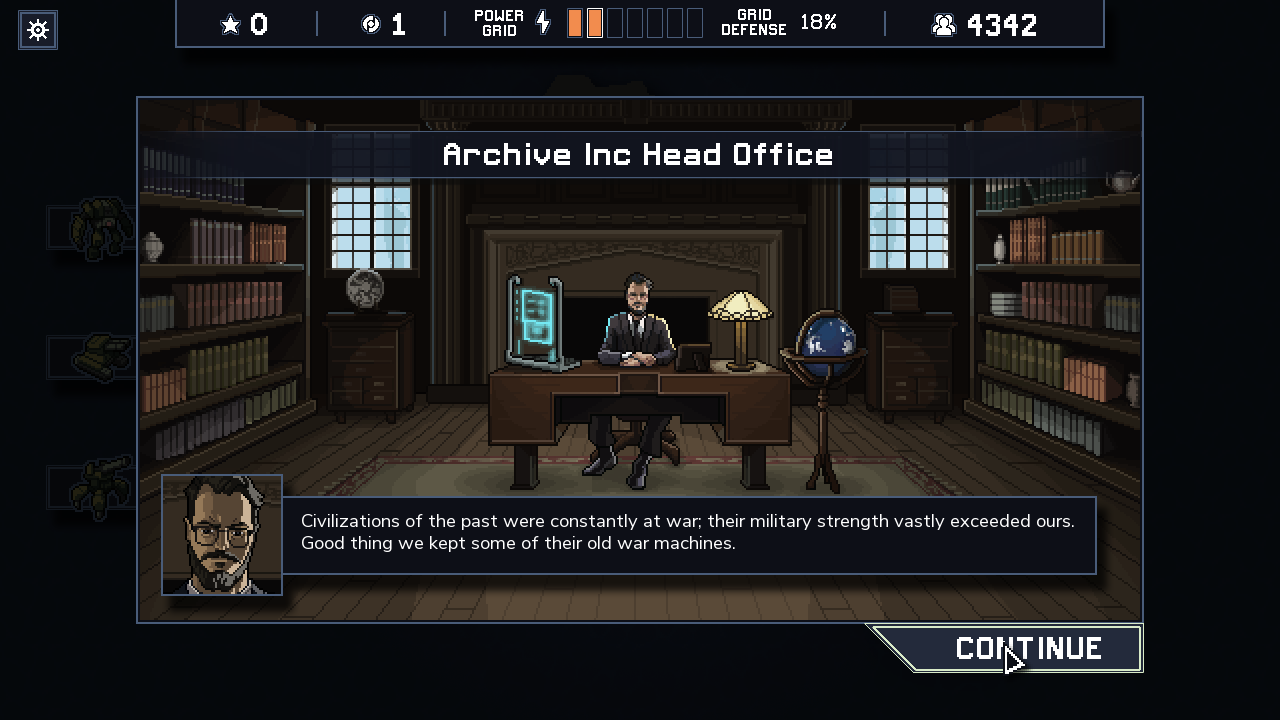
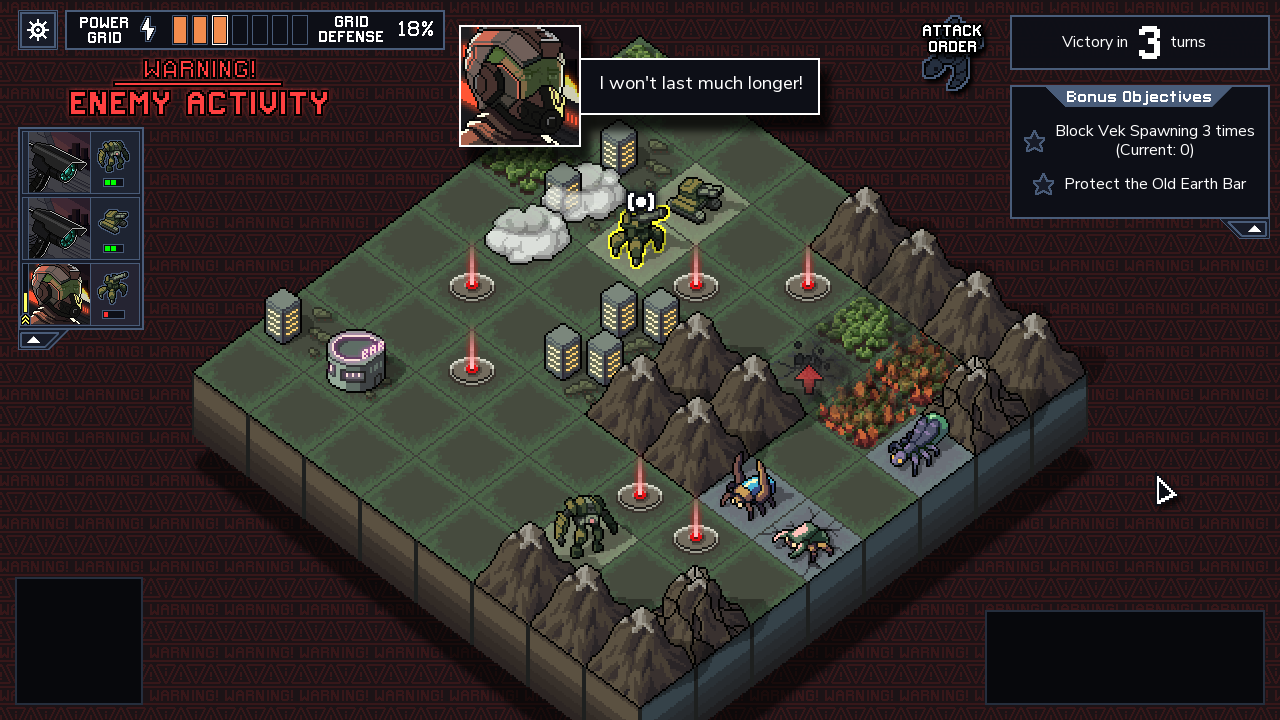
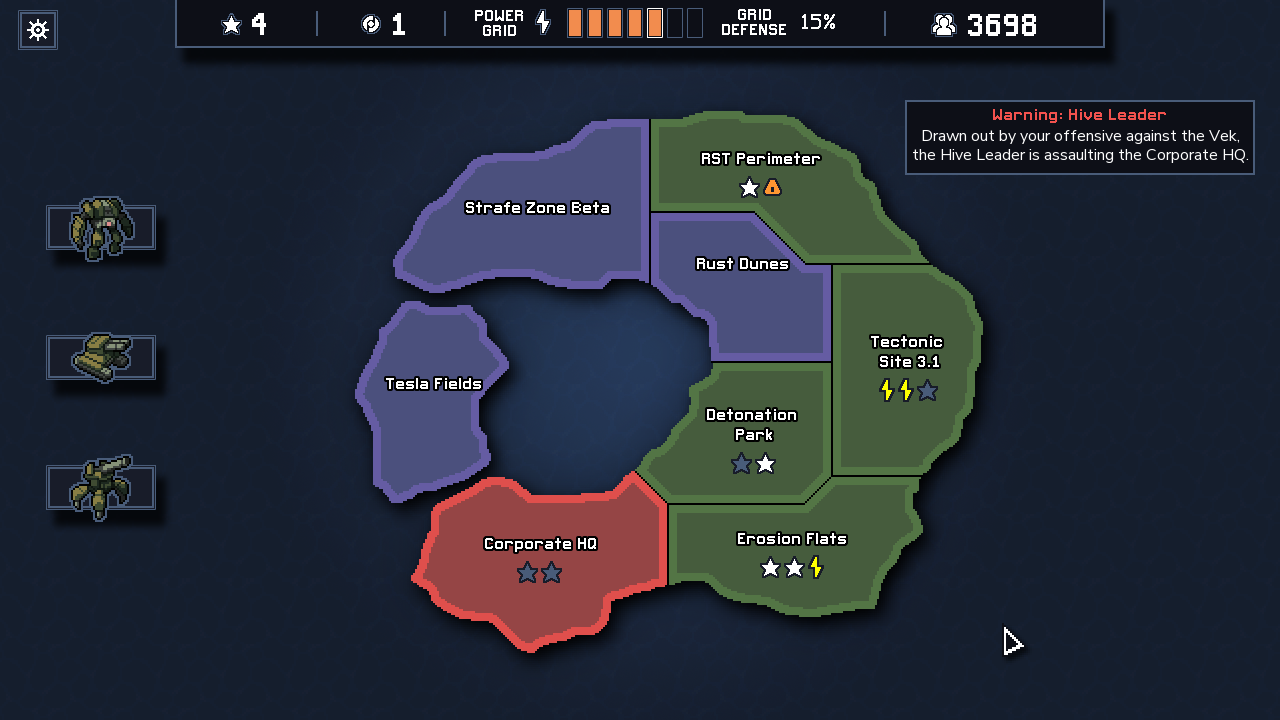
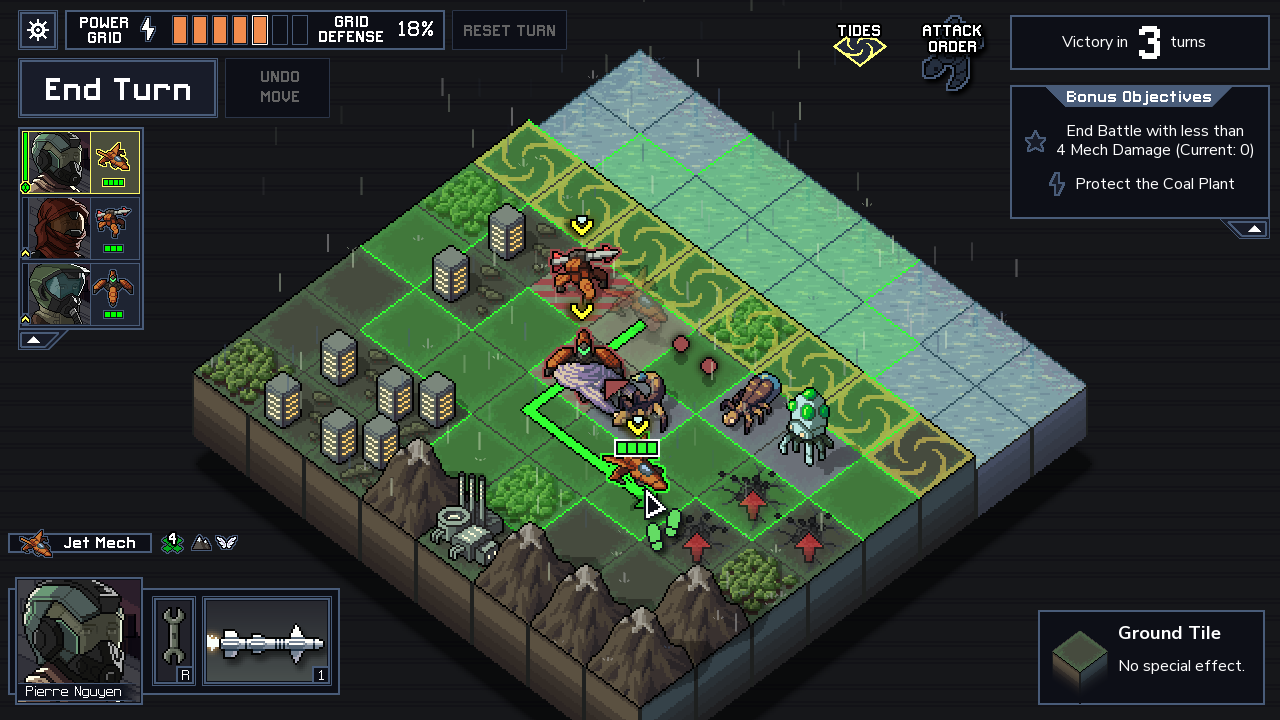
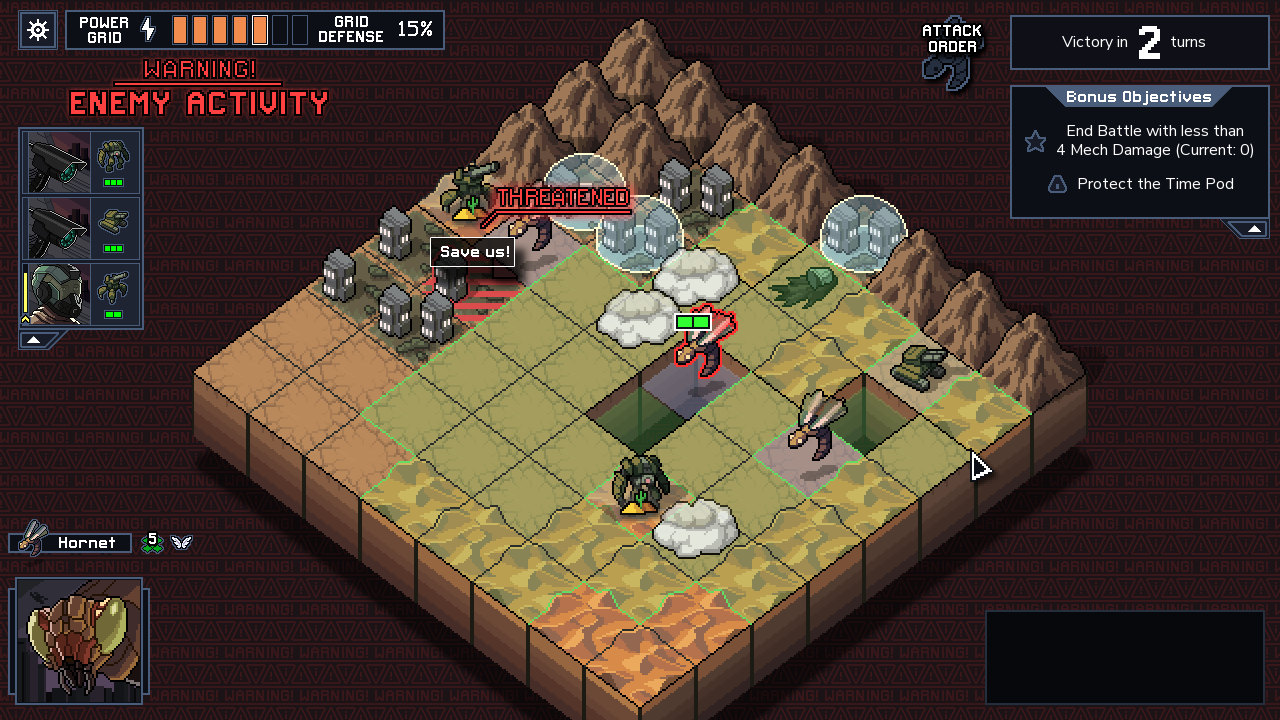
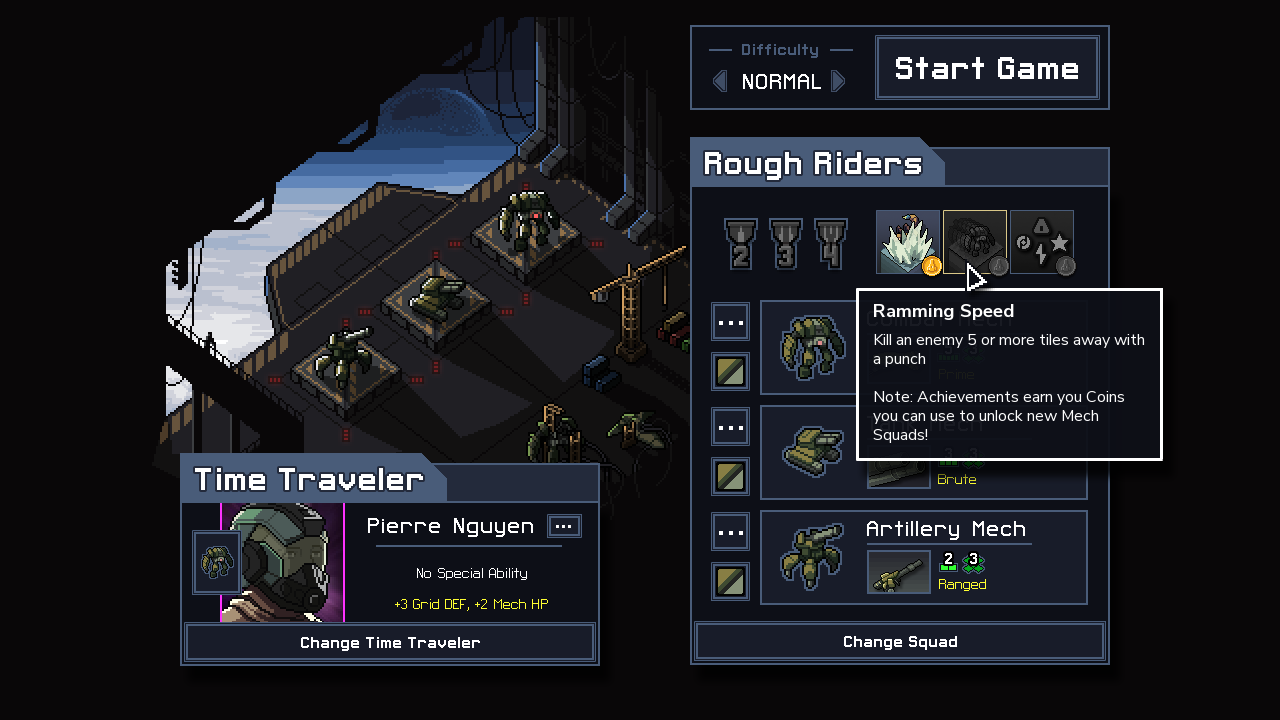
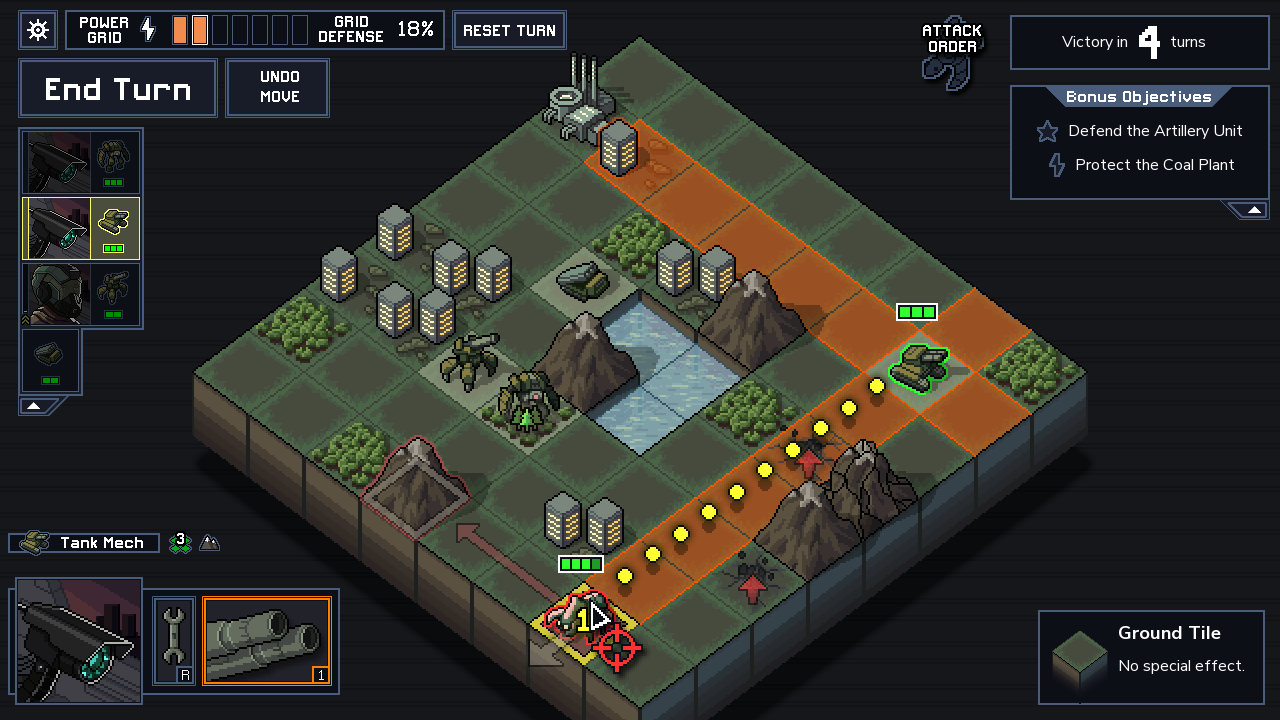
Exacting, agonising, challenging, and intensely rewarding, Into the Breach delivers in the tiniest package the most perfectly formed tactics around.
